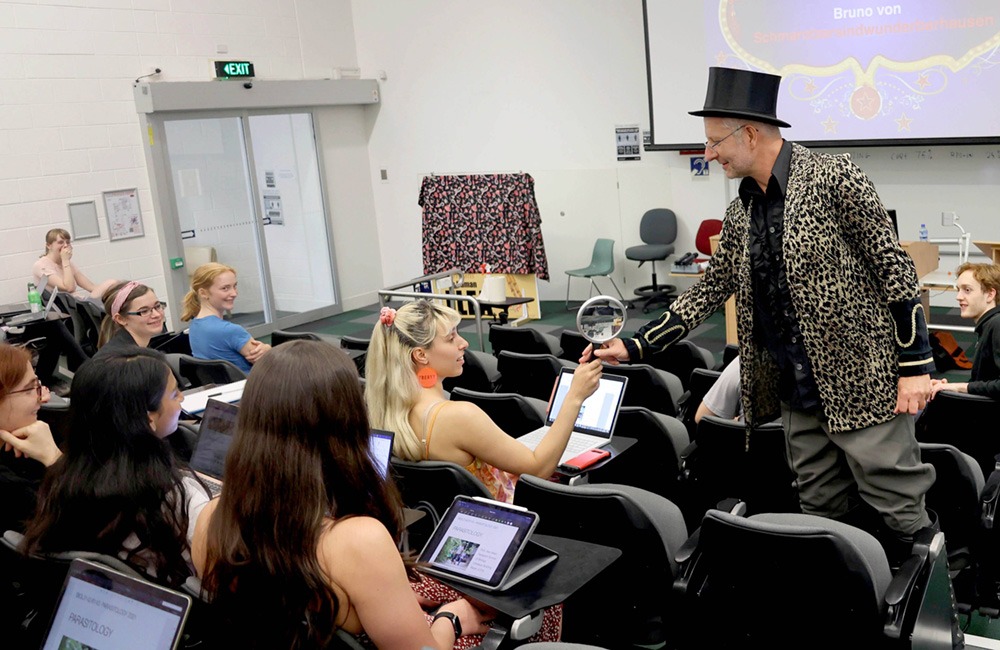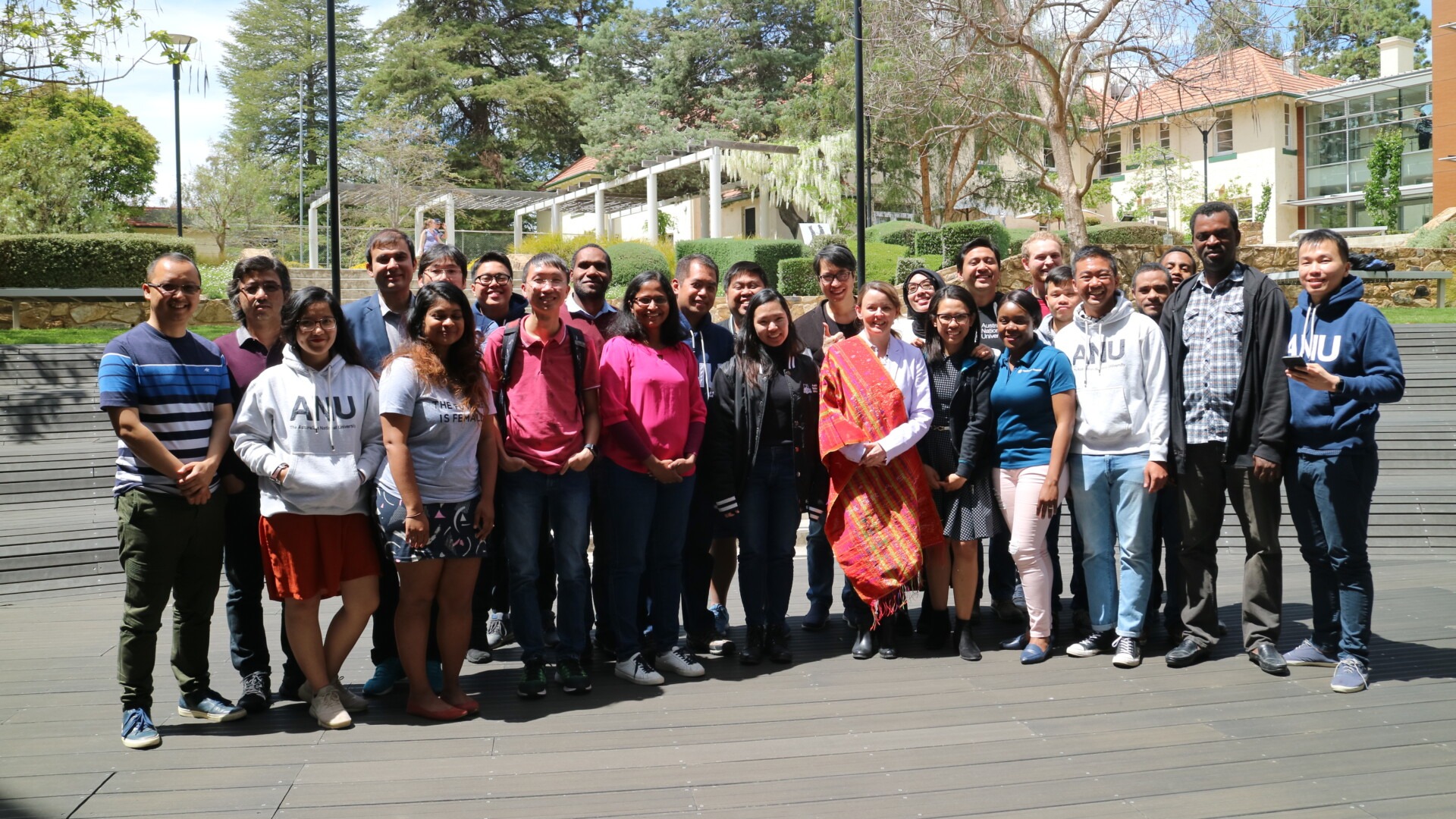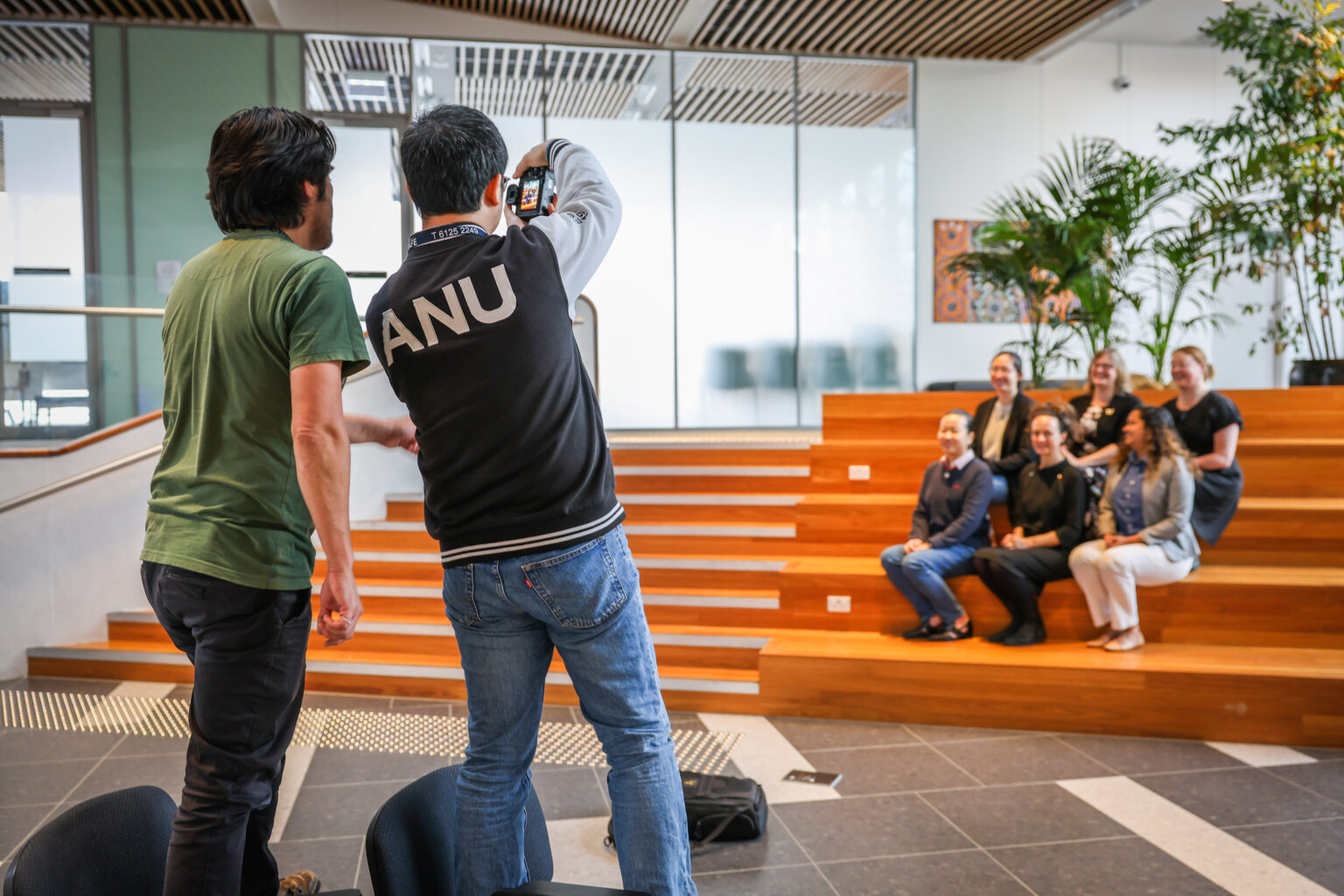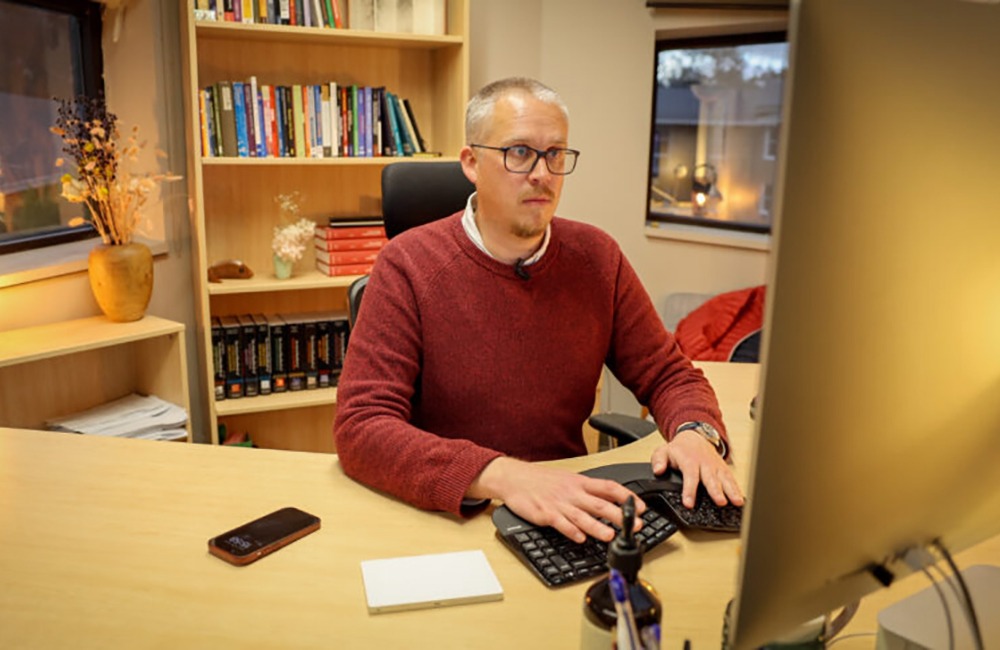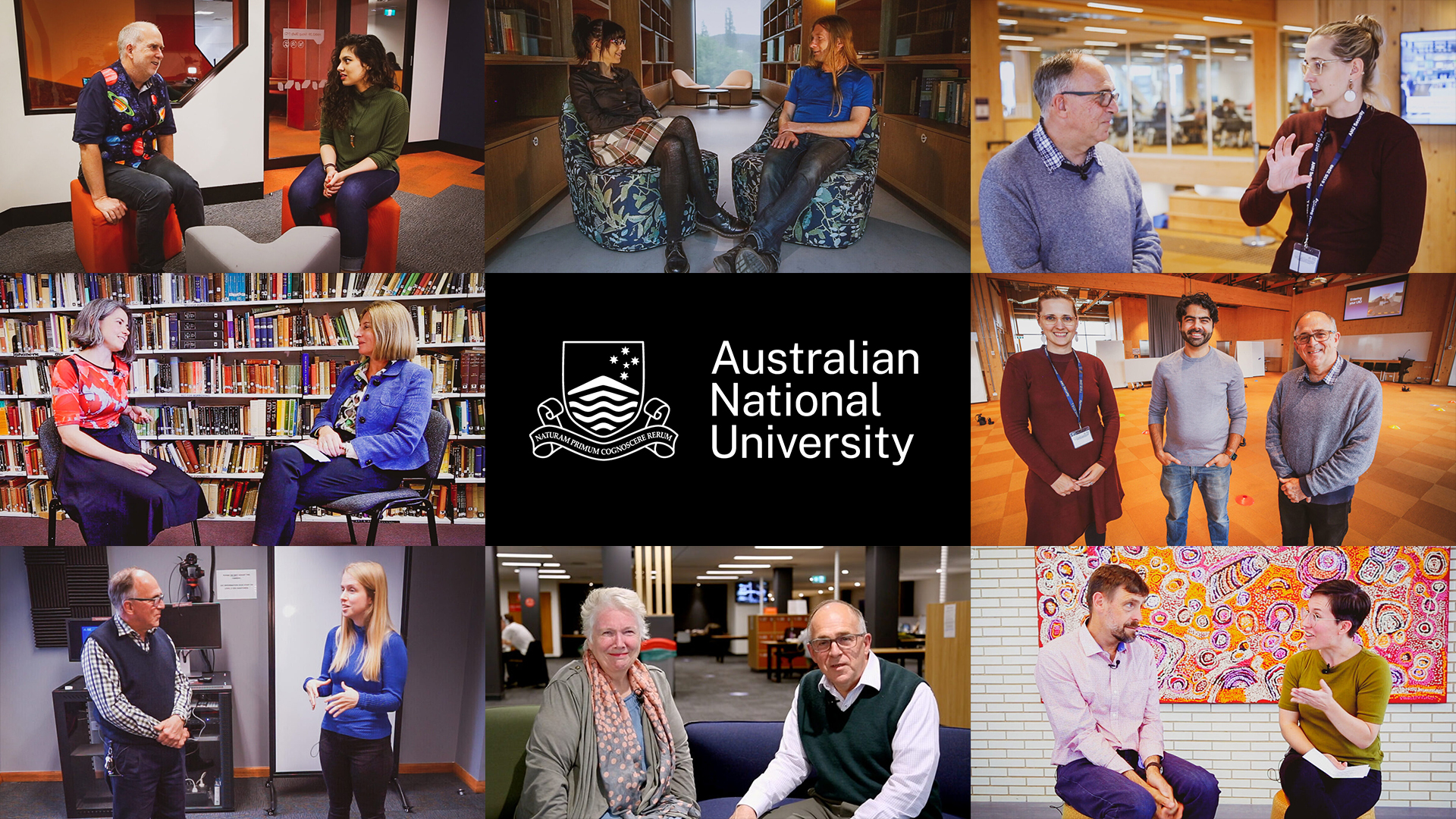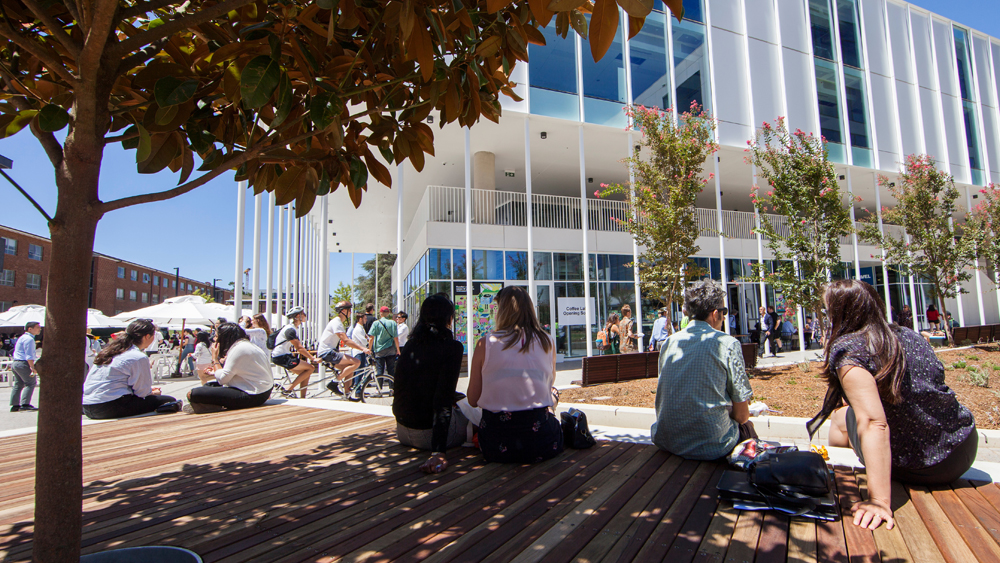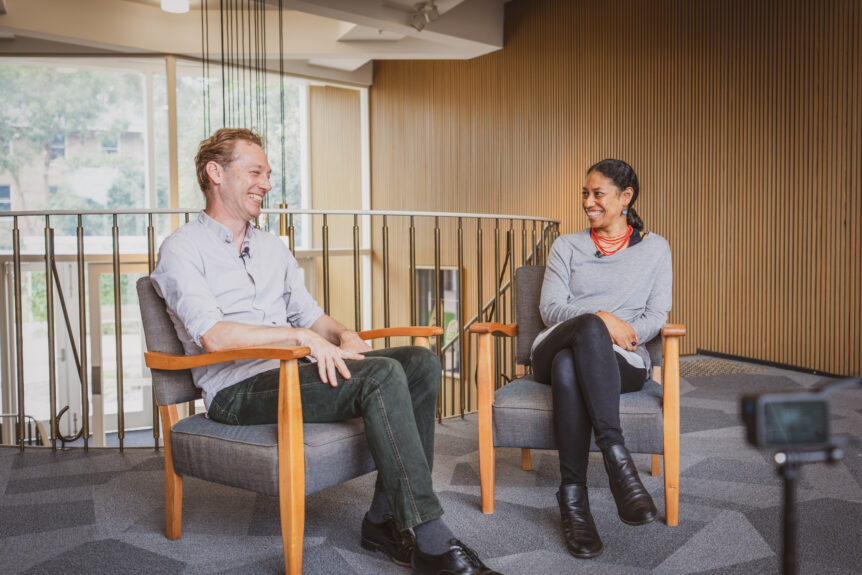While his research into solar material may result in many hours locked away in the laboratory, Dr Hieu Nguyen, FHEA and Co-Chair of the Network for Early Career Academics at ANU (NECTAR), has a passion for actively engaging in the on-campus learning and teaching environment. His personalised approach to teaching places the welfare of students at the forefront, and acknowledges them as the multi-faceted individuals they are.
Hieu’s people-centred approach stems from his days as a student at Portland State University in Oregon, which he recalls as being a particularly positive experience. The individualised approach of his teachers extracted the best from him, inspiring him to repeat the same care and consideration when he himself became an educator.
“Within my classes, I developed good relationships with most of my lecturers and I thought, ‘wow, that has really enhanced the relationships,’” he recalls.
“If the lecturers can spend just three or four minutes asking questions like, ‘how are you?’ ‘Are there any problems you are facing right now?’ Just simple questions, I think that really helps to motivate the students, because they think, ‘the teacher pays attention to me’”.
As a lecturer of classes consisting of 40 to 60 students each semester, Hieu takes a hands-on approach to the learning process. This strategy proved more important than ever in 2020, when teaching abruptly shifted to an online context, leaving students with challenges transcending those usually experienced in the face-to-face environment. In addition to the mental health issues posed by isolation and lockdown, additional hurdles were emerging in the form of a nation-wide lack of webcams, internet connectivity issues and laptop shortages. While many of these problems were beyond Hieu’s control, he responded by increasing both his tutorial time and office hours, expanding the access students had to him and giving them a friendly figure to converse with.
“In that situation, there was no theory, no methodologies to follow, so we had to quickly work out how we could best meet the needs of the students,” he recalls.
“The tutors, the students and I, we were all quite shocked about what had happened. Every week, I would send out an announcement on Wattle saying that nobody wants to be in this situation, but together we can overcome it – I wanted to motivate the students.”
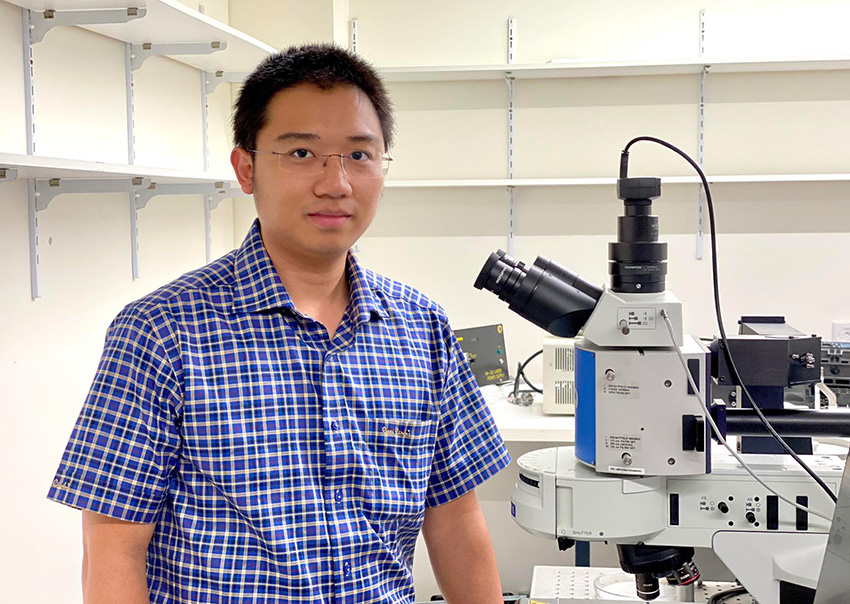
A silver lining of 2020 for Hieu was a greater involvement in learning and teaching activities at ANU. His laboratory work was suspended, leaving him to seek alternative activities to fill the time. He successfully nominated as a NECTAR Co-Chair, and set about developing initiatives to help early-career researchers at ANU develop their teaching skills. One of these initiatives will come to fruition throughout May and June, when the ANU Educational Fellowship Scheme (EFS) commences a series of workshops in conjunction with NECTAR, targeting early-career academics.
“I thought, I cannot go to the labs anymore, I have a little bit of extra time, so why not do something to support other people and help develop myself further? Why not try something service-related, to help with the leadership skills of myself and others?”
“I like sharing – otherwise I would just be stuck in the lab doing research, and missing out on a lot of opportunities around me.”
The Educational Fellowship Scheme will be collaborating with NECTAR to deliver a series of bespoke EFS workshops for early-career academics at ANU. Hieu, along with fellow early-career academic Bhavani Kannan, will be speaking at the first workshop. Find out more and/or register
Dr Hieu Nguyen FHEA is a Senior Research Fellow and Senior Lecturer within the ANU College of Engineering and Computer Science. He is also Co-Chair of NECTAR.
Kristie Broadhead is the Team Leader of Promoting Excellence in the Education Communities and Environments (ECE) – one of the three teams within the ANU Centre for Learning & Teaching (CLT)
